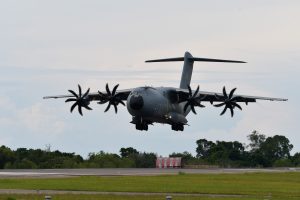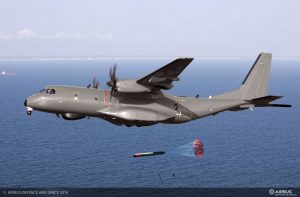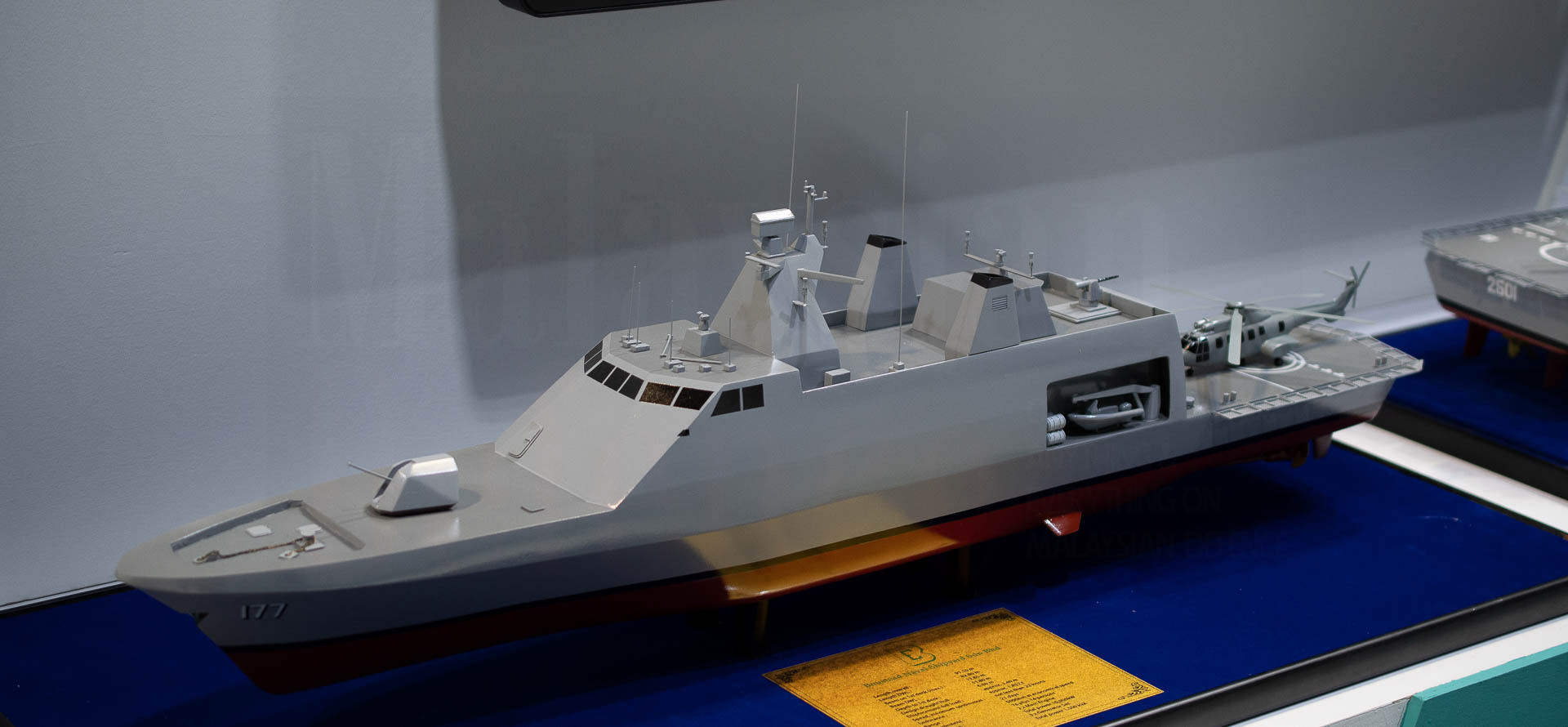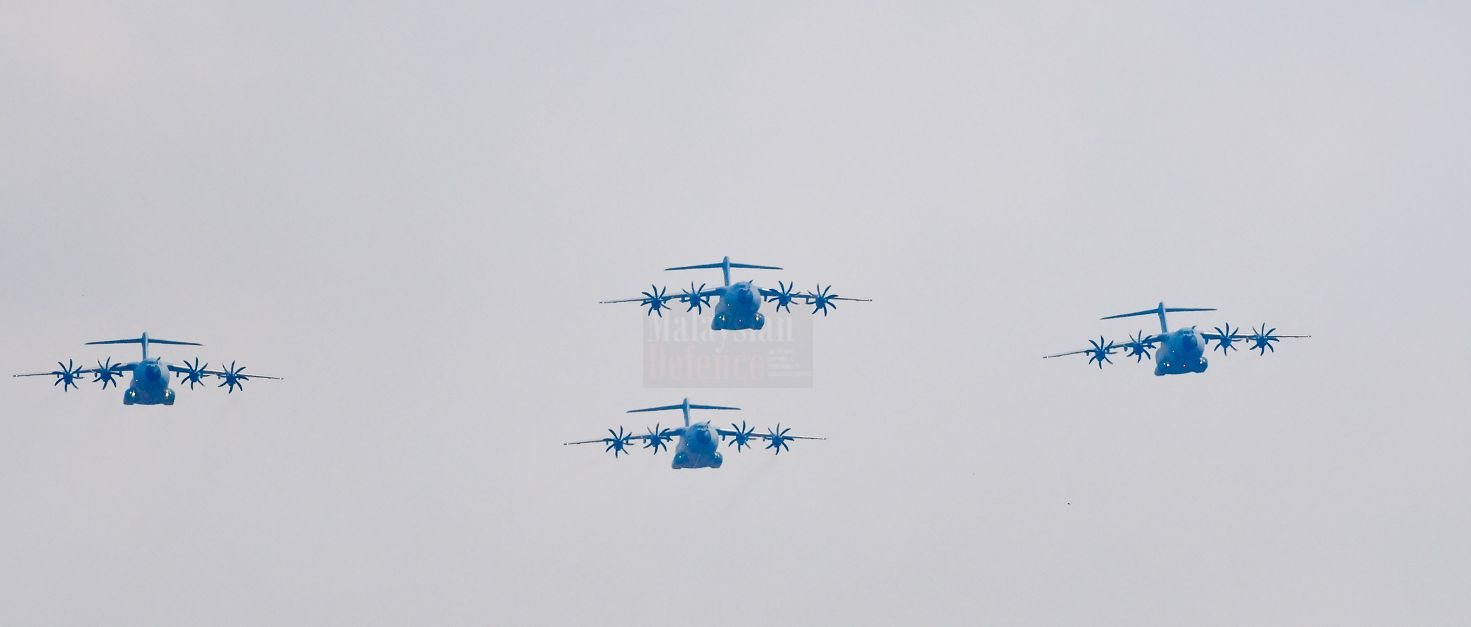
SHAH ALAM: Airbus reaffirms that Malaysia is an important market for its defence and space business.
Speaking to reporters at a media briefing, Airbus Defence and Space’s Head of Asia-Pacific
Johan Pelissier said that Airbus has developed extensive and strong industrial partnerships
with Malaysia that brought multiple benefits to the country’s economy.
“As a strategic partner to Malaysia, playing a major role in local industrialisation, Airbus
remains steadfast in growing this already strong local industrial footprint, to support the local
aerospace sector through Industrial Collaboration Programme, especially in the defence and
space segments,” he added.

The aerospace manufacturer is looking forward to enhancing existing partnerships in defence
and military fixed wing, to help Malaysia establish self-sustaining MRO operations and develop
higher-level engineering capability to support complex MRO across different military aircraft
platforms.Through its ongoing partnership with the Aerospace Malaysia Innovation Centre (AMIC),
Airbus is already researching solutions for sustainable aviation, with an emphasis on the
exploration of the potential of biomass as feedstock for sustainable aviation fuel. When the
need arises, Airbus stands ready to support Malaysia in the development of a sustainable
ecosystem that could involve hydrogen technology.Airbus’ products have also been supporting Malaysian defence and space sectors.
Malaysia is the first export nation of the A400M airlifter, and the aircraft is today one of the
most visible symbols of Airbus’ successful relationship with Malaysia.
“We are proud of how the Royal Malaysian Air Force uses the A400M fleet extensively for
SAR and humanitarian missions in the country, and across the Southeast Asia region,
especially during the recent months in the fight against COVID-19 and disaster reliefs,” said
Pelissier.Malaysia is an existing customer with MEASAT-3b, the country’s largest satellite manufactured and launched by Airbus in 2014. In 2019, Airbus was selected to build MEASAT-
3d, a new multi-mission telecommunications satellite to replace capacity and augment MEASAT’s core business in Malaysia, Asia, Middle East and Africa. The plan is to launch this
new satellite in 2022.In the area of Maritime Surveillance and Security, Airbus has enjoyed a 100 per cent market share
in Malaysia with its Styris solution for coastal surveillance with critical areas secured along
the Straits of Malacca and in East Malaysia, supporting the various local governmental
agencies for the past 15 years.Airbus has also confirmed its participation in Malaysia’s Maritime Patrol Aircraft tender,
offering its C295 MPA, a proven aircraft programme and a global reference in maritime
surveillance that offers the lowest risks, yet the best acquisition, operating and life-cycle costs
in its category – which is most suited for Malaysia.The C295 MPA is equipped with Airbus’ ingenious state-of-the-art mission system – Fully
Integrated Tactical System (FITS) and comprehensive sensor suites, which makes it the only
military MPA platform in-service today that is highly robust and tactically ready at any time.It is confident that the C295 MPA is the perfect choice for Malaysia’s requirement, representing
the best combination of value and capability.Currently, Brazil, Canada, Chile, Oman and Portugal have successfully operated the C295
MPA. This makes it the only MPA in its category that is in service today.

— Malaysian Defence





Something interesting from another arms manufacturer that has supported the Malaysian armed forces for 2 decades.👇🏼
Denel now faces another court case for contempt of court for not paying its employees full salaries. The court reserved judgment on 28 January.
Sadik told the select committee that “divisions with contracted productive workload have been able to recover, meet obligations and begin to repay outstanding employee salaries and statutory payments”.
But some divisions, such as Denel Land Systems, Denel Dynamics and Denel Vehicle Systems “continue to experience severe constraints”.
It will be interesting if there’s any party from Malaysia with the vision and cash to buy out and/or invest in Denel. It will be a coup of sorts as Denel has a good manufacturing base and the technology that we can tap into.
Reply
To sell to whom? Denel problems are mostly due to a small customer base, SADNF which due to a smallish budget cannot afford most of the things it needs and an even smaller export base. What ever expertise Denel have has flowed to other firms in the country and overseas, mostly Middle East countries with big budgets for national interest programmes. I have seen not any reports of companies rushing to buy over Denel. Probably they are waiting for it to go bankrupt first so they get the best price for them.
All this is just marketing spiel to appeal to the powers that be, that the Airbus offer is still around. Would have reached more ears if they have said they are willing to some form of bartering; if palm oil cannot, then rubber latex or crude oil or maybe bamboo (since our ex-Trade Minister say it is in high demand yea).
@Taib
We cannot even save our national defence project why do you think we could save other people’s national defence project?
That’s my drive actually. The last sentence of Admin here says it all. We either send overtures now or wait for Denel to go bankrupt and pick up the pieces we want.
To buy any company we must first have a long term plan as to how that company can be sustainable and profitable. It’s a very competitive market – how will Denel remain competitive?
Another question is whether a prospective buyer is buying the company because of its future potential or because of the know how it has. We must also have the needed funds to enable the company to conduct R&D. Like many things in South Africa; the defence industry went downhill following the post Apartheid era.
@joe
The South Africans are still ahead of us in many ways. We can’t save our crappy defence manufacturing base with the LCS project as our nation’s worst barometer. We shouldn’t even try with the rottenness that existed in our defence industry.
So, why can’t we delve into the best Denel and its subsidiaries can offer to jumpstart what we’re lacking thus far? IMO, am already seeing this as a possibility, but it should be pursued by the nation’s top corporations. It’s just something that ought be looked at by MinDef and the Jemaah Menteri.
There are other reason why others want to buy up a bankrupt company cheap.
1. To take over its patents for own use or like IBM watches n see who 8nfringe the patents
2. Buy it. Close it n make sure no one else have access to it. One less competitor
Taib – “. It’s just something that ought be looked at by MinDef and the Jemaah Menteri.”
They have their hands full dealing with issues back home. As it it the
“Jemaah Menteri” are bogged down dealing with internally stuff and MINDEF has its hands full dealing with MAF issues.
Both being able to focus and having the political will to pursue the possibility of acquiring a foreign entity at this moment is overly optimistic.
@Taib
They were resourceful due to Western clandestine support on the Apartheid government to bypass UN sanctions. Later on they achieved some notable successes mainly due to creations of Gerard Bull, but after he passed away and SANDF no longer on warfooting, they went downhill. The only reason they could survive this long is due to another clandestine partnership with Rheinmetall to bypass strict German laws on weapons export. If Denel were to go under, Rheinmetall will want to keep that part of the business in SA to continue on. The rest is money losing entities without a visionary chief designer like Bull (who was Canadian btw).
@joe
I remain hopeful we can salvage some neat pickings from the Denel Group, especially from Denel Land Systems. I too see Denel has lost its bearings somewhat for several years now. The current CEO Mr Sadiq is an accountant type and basically wants to see Denel in the black again, albeit in a shrunken form divested of its loss making units. Rheinmetall may not want to take on an entire bankrupt Denel. Who knows, the next few months will probably see something shaping up on Denel and in South Africa. By the way, the way things are going on in Boustead now is like Denel before it went downhill. Nothing good in Boustead but there’s still some good stuff in Denel. 🤔
Taib – “ I too see Denel has lost its bearings somewhat for several years now”
To sum it up; tight competition, shrinking local orders and a lack of cash for sustainment and R&D.
Some of the issues faced by Denel are also a reflection of things in the post Apartheid era.
Taib – “By the way, the way things are going on in Boustead now is like Denel before it went downhill.
It’s not BNS per see but the whole defence policy. It was our highly flawed and self defeating policy, plus our inability to learn from past mistakes which enabled the LCS and other cock ups to occur.
Whilst it’s great to point fingers at BNS we really have to look at the overall situation; our overall approach to defence and the disastrous emphasis placed on local companies (not just BNS) based on flawed reasoning at the expense of the end user and taxpayer.
Tab – “Nothing good in Boustead but there’s still some good stuff in Denel”
Not really …
BNS started off a a refit facility and did it quite well. The problem started when political decisions were made to embark on highly ambitious political driven programmes.
The situation with Denel is wholly different. Issues faced by both companies are due to different issues …
@Taib
You can buy out a company’s IP rights and/or manufacturing rights without buying out the company and shouldering its debts. But except for G5 & G6 howitzers, the rest of its products only got a mere handful of customers, us included. If their products are not competitive in the open market, why even bother? To use for our own? The cost to buy out and manufacture here cannot justify our small and infrequent demands.